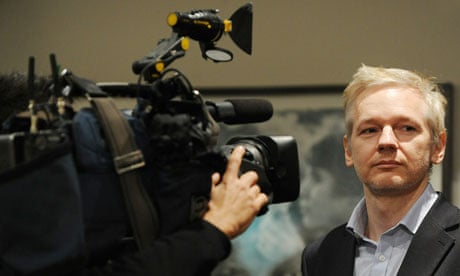The damage caused by the WikiLeaks controversy has caused little real and lasting damage to American diplomacy, senior state department officials have concluded.
It emerged in private briefings to Congress by top diplomats that the fallout from the release of thousands of private diplomatic cables from all over the globe has not been especially bad.
This is in direct opposition to the official stance of the White House and the US government which has been vocal in condemning the whistle-blowing organisation and seeking to bring its founder, Julian Assange, to trial in the US.
A congressional official briefed on the reviews told Reuters news agency that the administration felt compelled to say publicly that the revelations had seriously damaged American interests in order to bolster legal efforts to shut down the WikiLeaks website and bring charges against the leakers. "I think they want to present the toughest front they can muster," the official said.
The official implied that the WikiLeaks fiasco was bad public relations but had little concrete impact on policy.
"We were told [it] was embarrassing, not damaging," the official added.
It appears that damage was localised in terms of a few specific cables, for example about Yemen, and thus expected to be containable in the long-run.
US officials say the continued media attention on revelations has made it difficult for Washington to repair relations with governments critical to its counter-terrorism operations, such as Pakistan and Yemen. Last November Hillary Clinton, the secretary of state, strongly condemned the leak of more than 250,000 diplomatic cables, claiming: "It puts people's lives in danger, threatens our national security and undermines our efforts to work with other countries to solve shared problems."
She added: "We are taking aggressive steps to hold responsible those who stole this information."
So far WikiLeaks has released just a fraction of a cache of diplomatic messages which came into its possession. It has done so with the co-operation of several global news organisations like the Guardian, the New York Times and Der Spiegel.
The US government is currently checking to see if criminal charges can be brought against Assange who is in London fighting extradition to Sweden for questioning over allegations of sexual misconduct.
Damage assessments by the state department, Pentagon and US intelligence community are meanwhile still continuing to focus on the leaks. The assessments also cover the leaking of tens of thousands of military field reports from Iraq and Afghanistan.



Comments (…)
Sign in or create your Guardian account to join the discussion